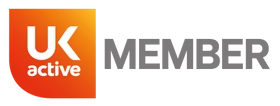Personal trainers today are uniquely positioned to transform the lives of menopausal women through expertly tailored exercise and nutritional advice. As menopause awareness rises and the fitness industry pivots to serve this empowered demographic, developing the right skills is becoming imperative for trainers who wish to stand out, deliver results, and boost client wellbeing.

The Rise of Menopause Awareness
Menopause was once a rarely discussed subject in public health or fitness circles, often shrouded in stigma and misunderstanding. This is rapidly changing, with a sharp surge in awareness and open dialogue about menopause in the UK and globally.
Fitness brands, gyms, and personal trainers are now recognising the specific needs of menopausal women and adapting their offerings accordingly. The shift is driven by women themselves, who are stepping forward in record numbers - participation in women’s wellness spaces rose by 82% over one year, with 62% of women over 45 naming menopause symptom management as a leading reason for exercise.
Adapting Approaches: The Personal Trainer’s New Frontier
The menopause transition brings dramatic changes to hormone levels, body composition, bone density, and energy. Personal trainers must now step beyond generic programming to create empathetic, bespoke coaching plans that meet these new realities.
It’s not just about shifting exercise sets - adaptation means cultivating communication skills, understanding the physiology and psychology of menopause, and learning how hormone fluctuations influence readiness and safety for activity. Menopause education helps fitness professionals to adjust training for bone and heart health, maintain muscle mass, and manage joint stiffness and weight changes.
Creating a sense of community and supportive environments where clients feel seen and heard can be as transformative as the workouts themselves.
Managing Energy Through Sleep, Diet, and Exercise
Fluctuating energy is one of the most common and disruptive symptoms of menopause. The interplay of hormonal changes can make some days feel impossible to exercise, while others flow with enthusiasm.
Trainers can support clients by varying intensity, building rest days into plans, and responding flexibly to energy dips. Nutrition plays a pivotal role, with menopausal women advised to consume a nutrient-rich diet high in vegetables, whole grains, lean protein, healthy fats, and enough calcium to protect bone health as oestrogen declines.
Muscle strengthening and weight-bearing activities (like resistance training, yoga, and brisk walking) are critical for preserving muscle and bone mass, while aerobic exercise supports the heart and helps regulate mood. Trainers should suggest low-impact activities when joints are sore and encourage forms of movement that suit ever-changing energy levels.

Making Sleep a Priority
Of all the health pillars, sleep is arguably the most important for women experiencing menopause. Hot flushes, night sweats, and anxiety can wreak havoc on quality sleep, compounding daytime tiredness and making healthy habits harder to maintain.
Sleep deprivation worsens stress, slows muscle recovery, increases hunger, and diminishes motivation. Training sessions must be adjusted on poor-sleep days, with expectations and exertion recalibrated.
Educating clients on sleep hygiene - cool rooms, winding down at night, and (where appropriate) discussing sleep challenges with a GP - can make a meaningful difference in their capacity to recover, adapt, and feel good in their bodies.
Navigating Hormonal Medication
Many women manage menopause symptoms through prescribed hormonal medications, such as Hormone Replacement Therapy (HRT). These drugs help to replenish falling oestrogen and progesterone, easing symptoms and helping protect long-term bone and heart health.
Personal trainers must understand the potential effects and side effects of these medications to tailor advice wisely. For example, HRT may affect exercise recovery, hydration, and cardiovascular responses.
Open dialogue with clients and ongoing education ensures that fitness and nutrition plans integrate medical factors and support overall wellbeing. Trainers shouldn’t give clinical advice, but knowing when to signpost women to healthcare professionals is an essential part of responsible coaching.
Empowering Lifelong Health
The modern fitness professional is more than a rep-counter - they are mentors, listeners, and guides through one of life’s biggest transitions. By building menopause-specific expertise, personal trainers can empower women to manage their symptoms, protect their health, and rediscover enjoyment in movement and self-care.
If you would like to expand your knowledge of exercise, nutrition, and lifestyle management for menopausal clients or for your own personal development, enrol onto the:
CIMSPA Endorsed MedFit Education Menopause Exercise Specialist Course
Enrol today – CIMSPA Endorsed Medfit Education's Menopause Health and Fitness Specialist – Study Active
Embrace this movement, and help redefine what’s possible for women in midlife and beyond.







